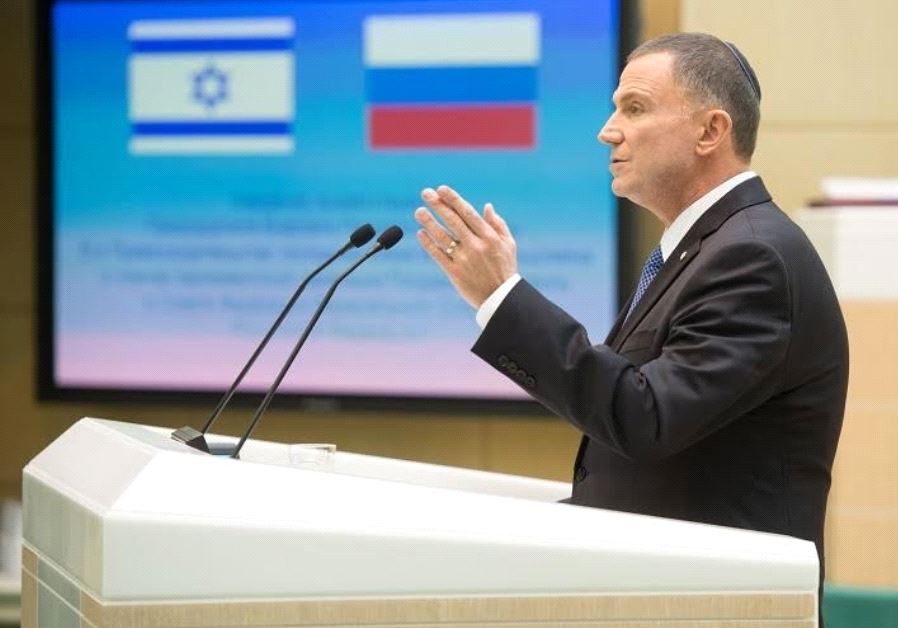71% of Russian speakers feel inadequately represented in gov't - poll
"Many stigmas still accompany us and Russian speakers are not adequately represented in most sectors of the Israeli economy."
 Knesset Speaker Yuli Edelstein addresses Russian parliament in Moscow, June 28, 2017(photo credit: COURTESY KNESSET SPEAKER'S OFFICE)
Knesset Speaker Yuli Edelstein addresses Russian parliament in Moscow, June 28, 2017(photo credit: COURTESY KNESSET SPEAKER'S OFFICE)